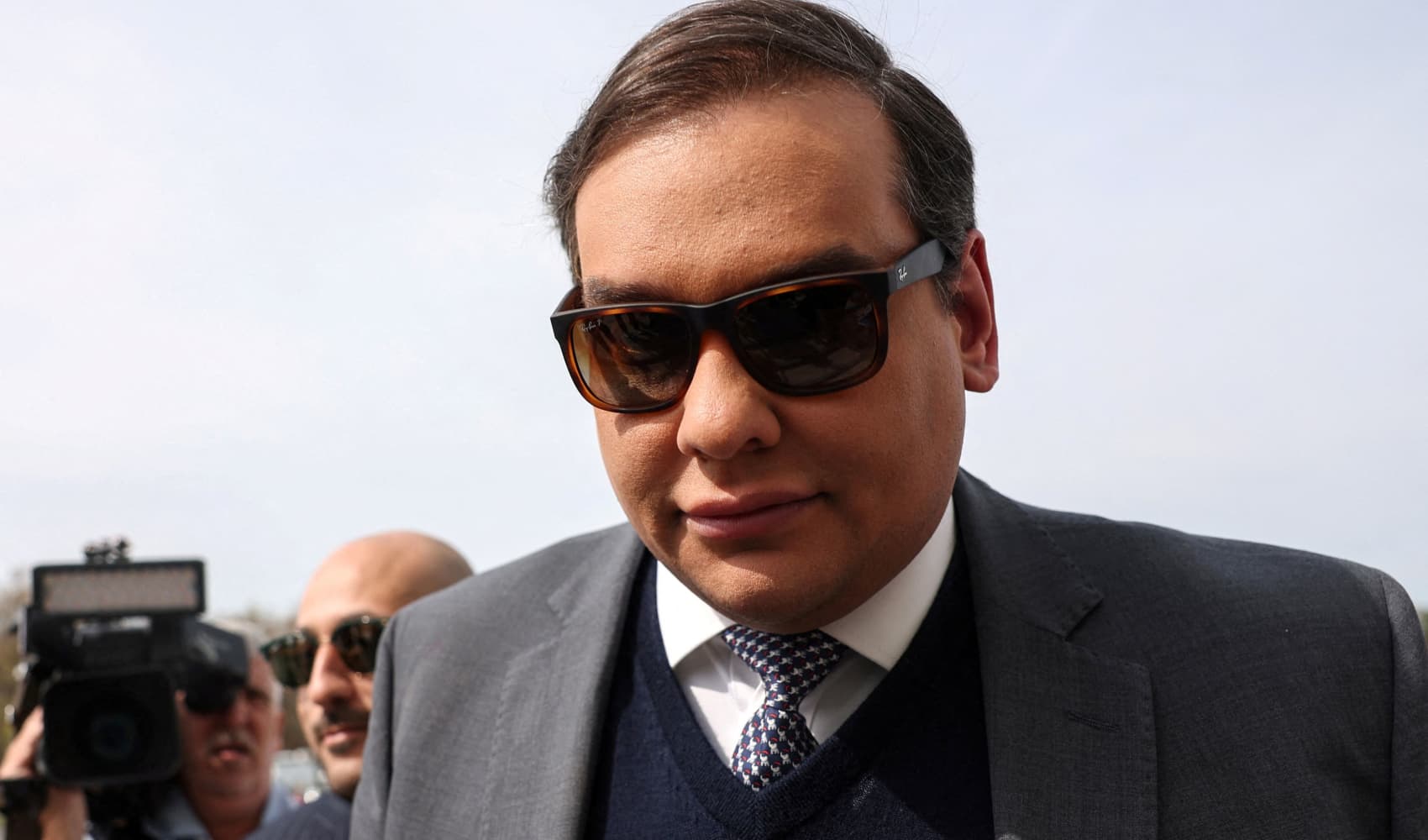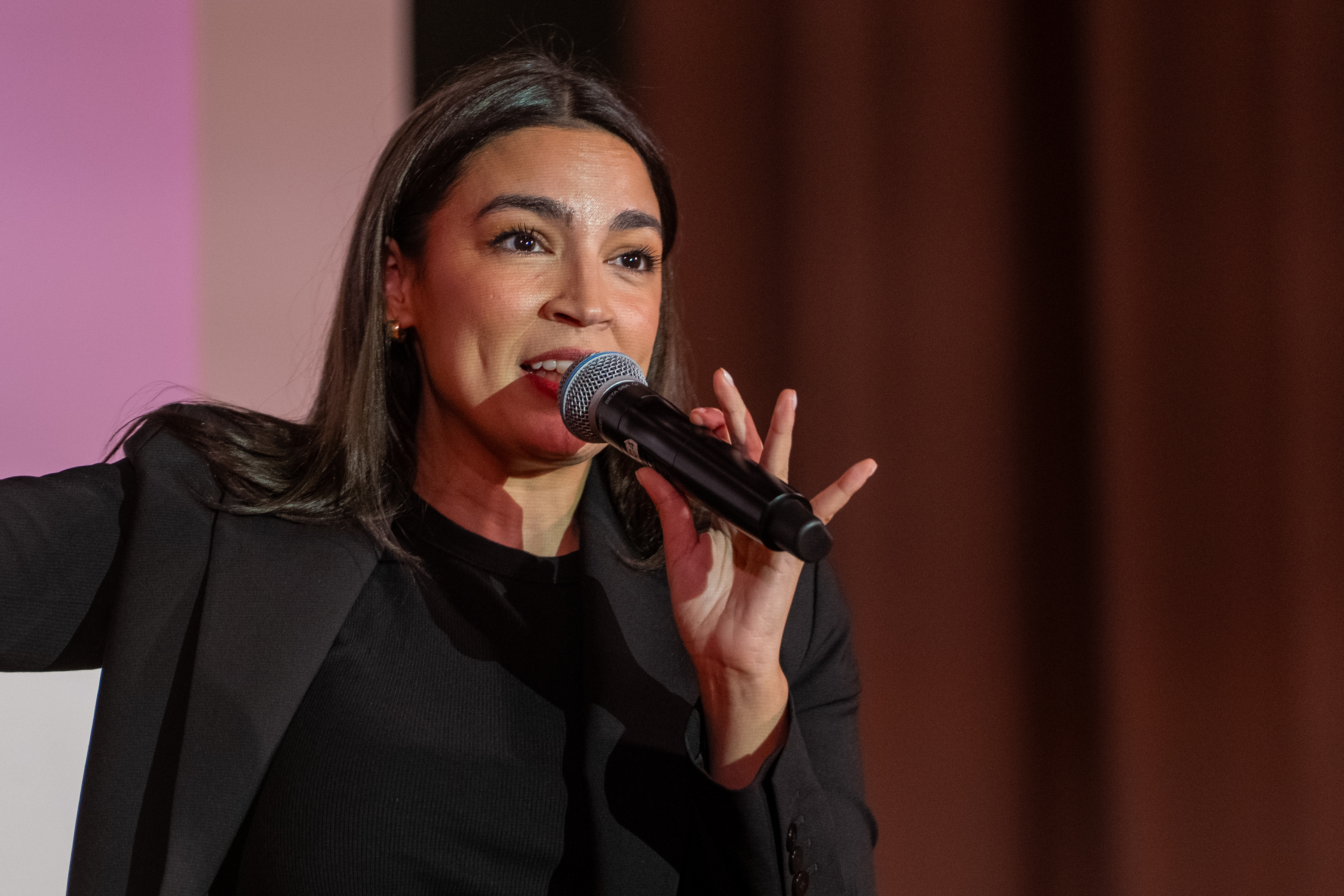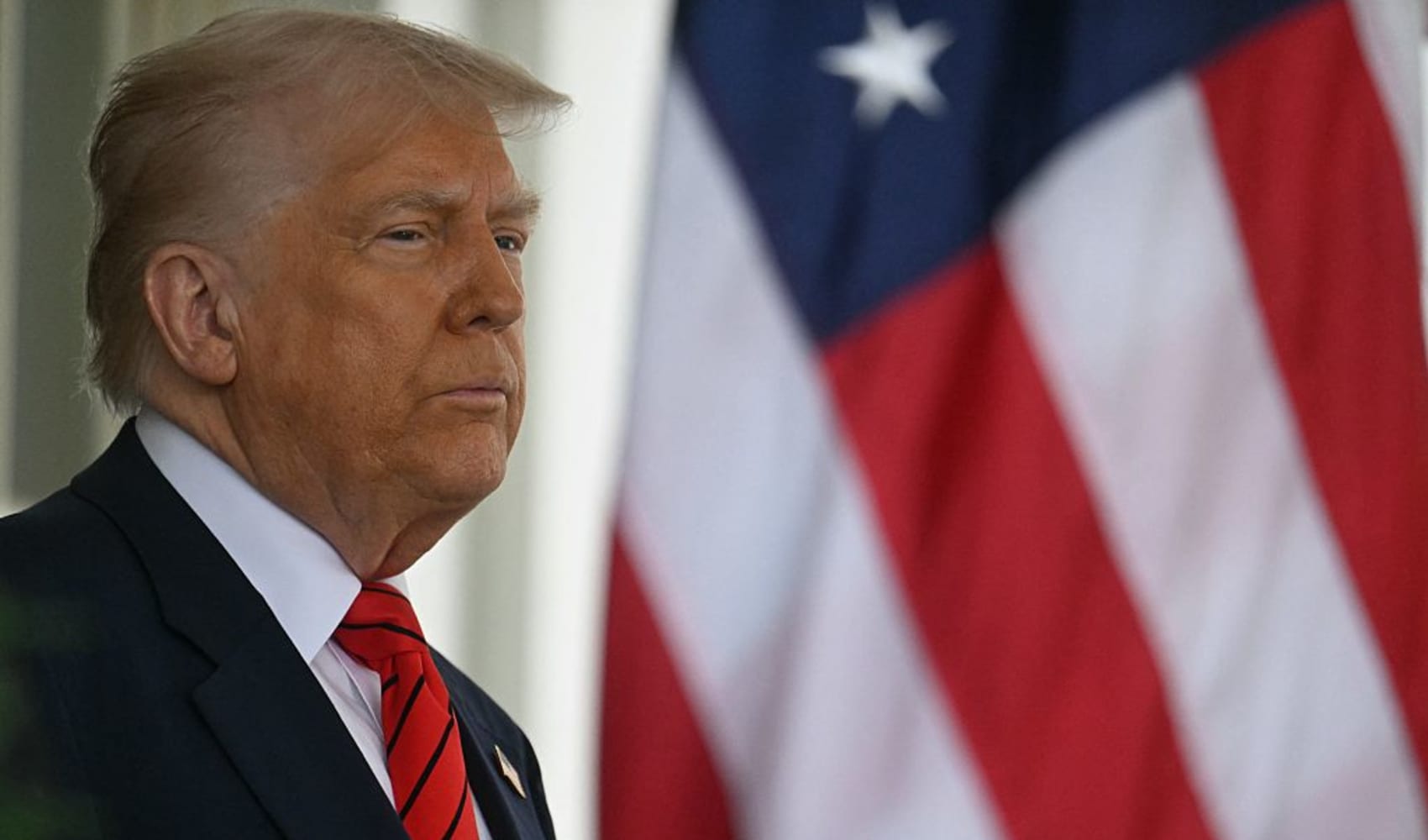George Santos Fraud Sentencing: Will He Go to Prison?
George Santos's Day of Reckoning: Fraud Sentencing Looms
Introduction: The Fall of a Fabricated Congressman
The gavel is about to fall on the curious case of George Santos, the former U.S. Representative whose political career was built on a foundation of, shall we say, creative storytelling. You know, the kind of storytelling where you invent entire swaths of your past. Remember him? The guy who seemingly appeared out of nowhere, riding a wave of Republican support, only to have his elaborate web of lies unravel faster than a cheap suit?
On Friday, Santos faces sentencing in federal court after pleading guilty to a slew of charges, including wire fraud and aggravated identity theft. His story is a cautionary tale of ambition, deception, and the consequences of playing fast and loose with the truth. But what exactly did he do, and what's next for this political chameleon?
A Timeline of Deception: How Did We Get Here?
The Rise of George Santos: A Seemingly Impeccable Resume
It all started with a campaign built on a resume that seemed too good to be true. Wall Street whiz, star athlete, successful entrepreneur – Santos painted a portrait of himself as a self-made man, a Horatio Alger story for the modern age. He charmed voters in New York's 3rd congressional district, promising to be their voice in Washington.
The Unraveling: Cracks in the Facade
But like any house built on sand, Santos's carefully constructed image began to crumble. Investigative journalists started digging, and what they found was a stark contrast to the polished persona he presented. No Wall Street pedigree, no college degree, no championship athletic career – just a series of fabrications designed to impress and deceive.
The Indictment: Formal Charges Laid Out
The lies weren't just limited to his resume. Federal prosecutors alleged that Santos had engaged in a pattern of fraudulent behavior, including stealing donor identities and using campaign funds for personal expenses. The indictment laid out a damning case, accusing him of wire fraud, money laundering, and making false statements to the Federal Election Commission. These weren't just minor embellishments; they were serious crimes with potentially significant consequences.
The Guilty Plea: Accepting Responsibility (Sort Of)
Pleading Guilty: A Calculated Move?
Faced with mounting evidence, Santos eventually pleaded guilty to federal wire fraud and aggravated identity theft. But was it a genuine act of contrition, or a calculated move to mitigate the damage? That's the million-dollar question. The plea deal likely included a reduced sentence in exchange for his cooperation.
The Terms: What Santos Agreed To
As part of the plea agreement, Santos has agreed to pay roughly $580,000 in penalties, a hefty sum that reflects the scale of his deception. He's also facing the possibility of prison time, the length of which will be determined by the judge at sentencing.
The Charges: Diving Deeper into the Deception
Wire Fraud: The Digital Deception
Wire fraud involves using electronic communications, like phone calls or emails, to perpetrate a fraudulent scheme. In Santos's case, prosecutors alleged that he used these methods to solicit donations under false pretenses, deceiving donors into thinking their money would be used for legitimate campaign purposes.
Aggravated Identity Theft: Stealing More Than Just Names
Aggravated identity theft is a particularly serious charge, as it involves knowingly transferring, possessing, or using the means of identification of another person with the intent to commit a crime. Santos admitted to stealing the identities of nearly a dozen people, including his own family members, to further his fraudulent schemes. This wasn't just about political gain; it was about exploiting and betraying the trust of those closest to him.
The Victims: Who Was Hurt by Santos's Lies?
Donors: Duped and Disappointed
The donors who contributed to Santos's campaign were among the first to feel betrayed. They believed they were supporting a candidate who shared their values and would represent their interests in Congress. Instead, they were unknowingly funding a fraudulent enterprise.
Voters: Misled and Disenfranchised
The voters of New York's 3rd congressional district were also victims of Santos's deception. They were presented with a false image of the candidate they were voting for, denied the opportunity to make an informed decision based on accurate information.
The Republican Party: A Tarnished Image
The Republican Party also suffered reputational damage as a result of Santos's actions. His lies and fraudulent behavior cast a shadow over the party, raising questions about vetting procedures and the integrity of its candidates. His actions fueled public distrust in politicians on both sides of the aisle.
Sentencing: What Awaits George Santos?
The Judge's Discretion: Factors in Sentencing
The judge in the case will consider a variety of factors when determining Santos's sentence, including the severity of his crimes, his level of cooperation with investigators, and his prior criminal history (if any). The judge will also hear arguments from prosecutors and Santos's defense attorney.
Possible Outcomes: Prison Time and Financial Penalties
Santos could face a range of penalties, including prison time, probation, and continued financial restitution. The exact length of his prison sentence will depend on the judge's assessment of the circumstances.
Will He Serve the Full Sentence?
It's unlikely Santos will serve the maximum possible sentence. Plea deals often involve agreements on sentencing recommendations. However, the judge ultimately has the final say. It remains to be seen whether the judge will view Santos's actions as deserving of leniency or a more severe punishment.
The Aftermath: A Stain on Congress
Expulsion: Kicked Out of Congress
Before his guilty plea, Santos faced expulsion from the House of Representatives. Ultimately, his colleagues voted overwhelmingly to remove him from office, a rare rebuke that underscored the gravity of his transgressions. This marked the end of his brief and tumultuous career in Congress.
Erosion of Trust: Damage to the Political System
The Santos saga has further eroded public trust in the political system. His lies and fraudulent behavior have reinforced the perception that politicians are dishonest and self-serving. Restoring that trust will require greater transparency, accountability, and a renewed commitment to ethical conduct.
Lessons Learned: Can We Prevent This From Happening Again?
The Santos case raises important questions about the vetting process for political candidates. How can we better identify and prevent individuals with fraudulent backgrounds from seeking public office? Stronger background checks, more rigorous scrutiny of campaign finances, and a greater emphasis on truthfulness and transparency are all essential steps. Ultimately, it's up to voters to demand integrity from their elected officials and hold them accountable for their actions.
Political Ramifications: Ripple Effects in New York
Impact on the Republican Party: A Setback in NY
Santos's scandal undoubtedly hurt the Republican Party in New York. His district became a symbol of political dysfunction, and the party had to scramble to find a replacement candidate. The episode served as a reminder of the importance of careful candidate selection and the potential consequences of overlooking red flags.
The Special Election: A Chance for Redemption
A special election was held to fill Santos's vacant seat, offering voters a chance to choose a new representative. The outcome of that election could have significant implications for the balance of power in Congress. Who will ultimately fill the void left by the disgraced congressman?
Future Elections: Will Voters Remember?
The Santos saga will likely linger in the minds of voters for years to come. It serves as a reminder of the importance of vigilance and the need to hold politicians accountable for their actions. Will voters remember the lies and deception when they head to the polls in future elections?
The Santos Legacy: A Cautionary Tale
A Symbol of Political Deception: A Modern-Day Case Study
George Santos has become a symbol of political deception, a case study in how lies and fraud can undermine the democratic process. His story will be analyzed and debated for years to come, serving as a warning to aspiring politicians and a reminder to voters to be vigilant and demand honesty from their elected officials.
The Importance of Transparency: Sunlight as Disinfectant
The Santos scandal underscores the importance of transparency in politics. Sunlight is the best disinfectant, as the saying goes. By shining a light on the activities of politicians, we can help to expose corruption and prevent future instances of fraud and deception.
The Need for Accountability: Holding Politicians Responsible
Ultimately, holding politicians accountable for their actions is crucial to maintaining a healthy democracy. When politicians lie, cheat, or steal, they must be held responsible for their behavior. The Santos case is a reminder that no one is above the law, and that even those who reach the highest levels of government can be brought to justice. It’s a harsh lesson, but one we must learn to safeguard the integrity of our political system.
Conclusion: The End of the Santos Show?
The sentencing of George Santos marks a significant moment in this bizarre and unsettling chapter of American politics. From his fabricated resume to his fraudulent fundraising schemes, Santos's actions have had a lasting impact on the voters he deceived and the political system he undermined. While the sentencing may bring a sense of closure, the questions raised by his case will continue to resonate. Will this serve as a wake-up call for the political establishment? Can we implement safeguards to prevent similar deceptions in the future? Only time will tell. But one thing is clear: the story of George Santos is a reminder that truth and integrity must be the cornerstones of our democracy.
Frequently Asked Questions
- What specific charges did George Santos plead guilty to?
George Santos pleaded guilty to federal wire fraud and aggravated identity theft.
- How much money is Santos required to pay in penalties?
As part of his plea agreement, Santos is required to pay approximately $580,000 in penalties.
- What is the potential prison sentence Santos faces?
The exact length of Santos's prison sentence will be determined by the judge at sentencing. The maximum sentence for the charges he pleaded guilty to is several years, but the actual sentence could be less depending on various factors.
- How did Santos use the stolen identities?
Santos used the stolen identities to commit fraud, including making unauthorized charges to credit cards and opening fraudulent accounts.
- What impact did Santos's actions have on the Republican Party?
Santos's actions damaged the Republican Party's image, particularly in New York, and raised questions about the party's vetting procedures for candidates.



